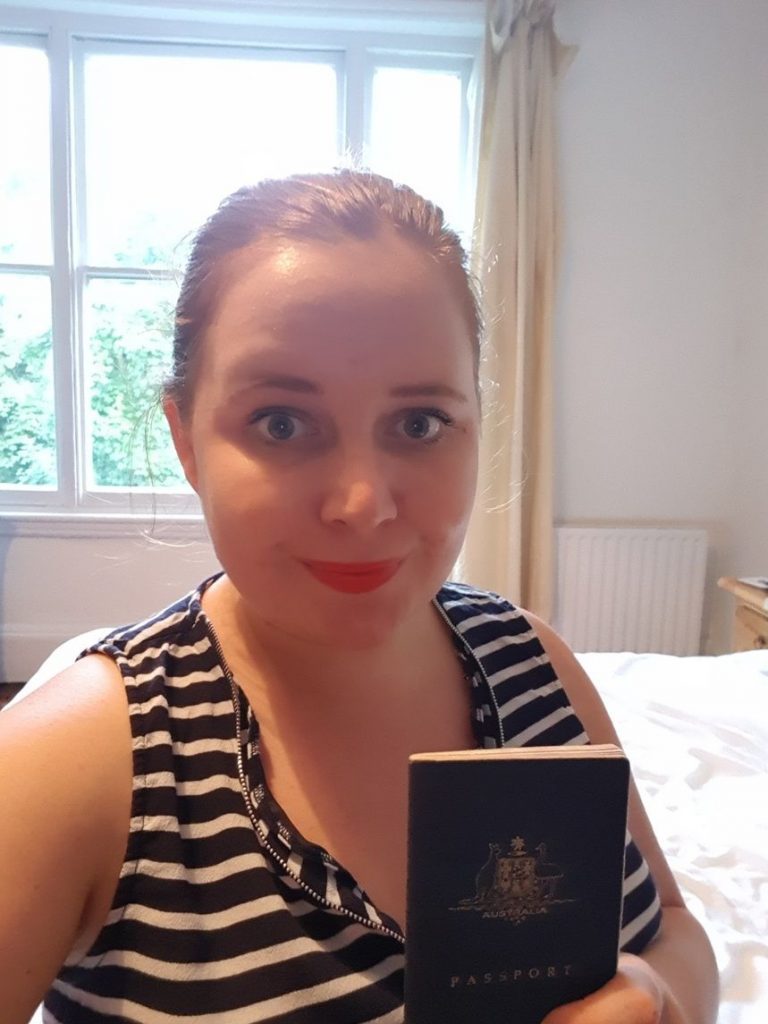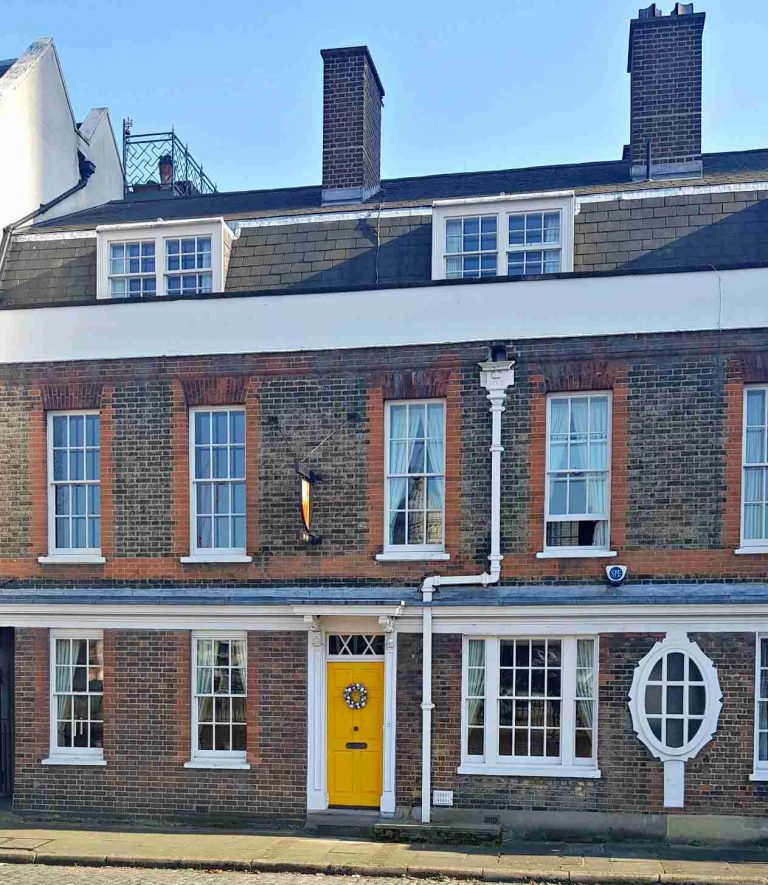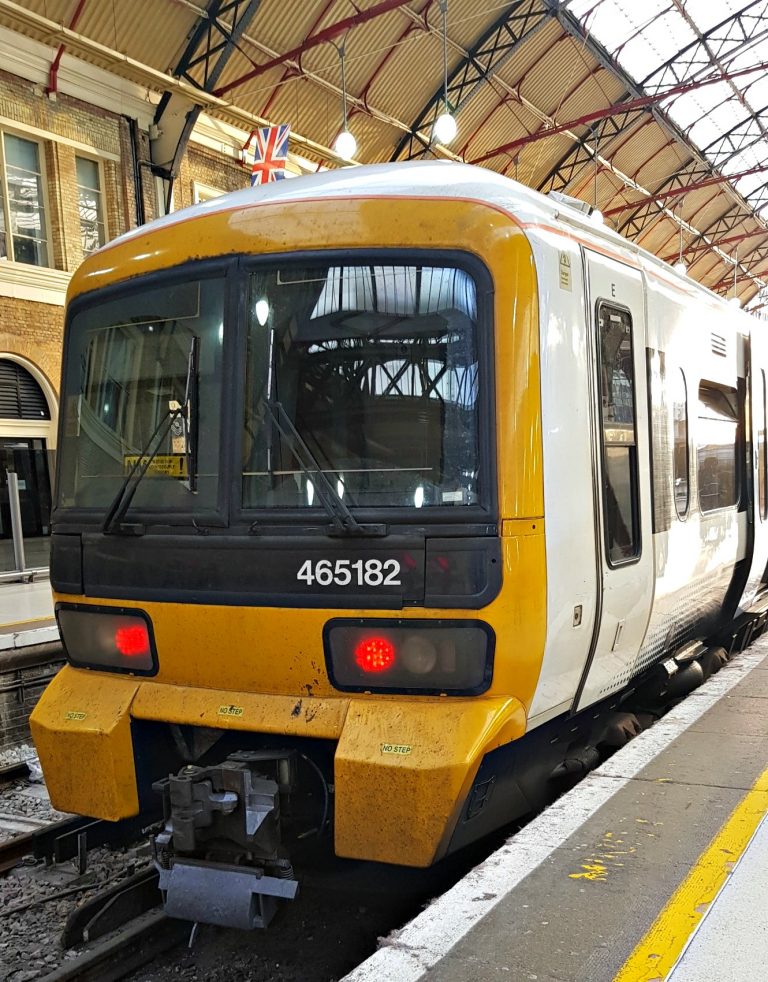You’ve decided that you are moving! What an exciting adventure you have ahead but there are a couple of things to organise before moving to the UK to make it happen!
The months before you leave you’ll have a huge number of things to do and organise. The sooner that you can get these things sorted and that checklist completed, the more you can enjoy those last couple of weeks with family and friends.
Disclaimer: Hi! this post may contain affiliate links which will take you to online retailers that sell products and services. If you click on one and buy something, I may earn a commission, see my Affiliate Disclosure for more details.
5 Months Before Moving to the UK
Prepare for Your UK Visa
The first step on things to organise before you move to the UK is to check if you need a visa. If you’re not a UK or EU citizen, then make sure you get your visa sorted before.
Generally, you can only apply 3 months before the date you depart for the UK but you should start preparing for your UK visa requirements early.
As each UK visa requirements are different it’s good to double-check what you need to prepare. As a minimum you will need:
- Your passport
- Be able to meet UK visa financial requirements (in your bank account for ideally 3 months)
- Visa fee plus the healthcare surcharge
Check Your Passport is Valid

It’s important that your passport is still valid and has more than one-year validity from your arrival date in the UK. If it doesn’t then ensure that you get a new passport before you apply for your visa.
Most countries have an embassy in the UK which will have the facility for you to renew your passport. I have had to renew my passport in London and it was an easy process with the Australian embassy here. Learn about my experience on how to renew your Australian passport in the UK.
Purchase Your Flights! (Optional)

The most exciting part is booking your one-way ticket! The most popular airports to fly into in the UK are Heathrow, Gatwick, Manchester, Stansted, Luton, Edinburgh, Birmingham, Glasgow, Bristol, Belfast International, Newcastle, Liverpool, London City, Leeds Bradford, Aberdeen and Cardiff.
If you are arriving in London from countries like Australia, Canada, America and South Africa then you will be flying into Heathrow or Gatwick.
Waiting for your visa to be approved before buying flights is also an option. Depending on the time of year last minute flights can be expensive especially around Christmas, Easter and Summertime (July to August). Buying a flight is all down to personal choice and when you feel most comfortable purchasing flights.
Just to note the new system requires you to pick up your Biometric Residency Card (BRP) in the UK within the first month of issue date so you must do this before travelling elsewhere in the UK.
4 Months Before Moving to the UK
Organise Your Belongings
While 4 months may seem like a long time away it can take a while to organise your belongings especially when you need to sell a car or decided what to do with your furniture so it’s good to start having a plan on what you are doing with your belongings.
Then make a list of what you are taking with you, keeping (storage, at your parents etc), selling, donating and throwing away.
I was lucky enough to store my belongings at my parents’ house and I just ended up donating the rest as I left it so last minute to sell anything.
Check If You Require Any Qualifications or Permits to Work in the UK
Check if you have restrictions, permits or qualifications required for your job in the UK, the lead time, supporting information and process.
As I am sure you are aware each country will have its own standards for each industry. Some professions will require you to be certified in the UK or have restrictions/permits around certain jobs. For example, health professionals can check what license you require on the Health & Care Professional Council, here.
Not all international qualifications can be transferred and be able to do the same job. My friend couldn’t work as a pharmacist on her New Zealand qualification, so she’s had to work as pharmacist’s assistant.
If you are unclear of what qualifications or permits are required I suggest speaking to a UK recruiter in your field. They should be able to recommend what companies are looking for in terms of qualifications or permits.
Sometimes permits are referred to as a UK Visa which is unhelpful when you are trying to find job-specific permits so make sure you are specific when explaining.
3 Months Before Moving to the UK
Apply for Your UK Visa
Now that you are finally at the 3-month mark the most important thing is for you to apply for your visa. Start filling out the application once you’ve collected all the supporting documentation.
Tier 5 Youth Mobility Visa:
Go to Gov.UK Youth Mobility overview for the latest link to apply.
UK Ancestry Visa:
Go to Gov.UK UK Ancestry overview to get the latest link to apply.
On average you will receive a decision on your visa application within 3 weeks of lodging your application but this may vary depending on your country of residence.
Read more about UK Ancestry Visa and Right of Abode.
Do Some Tentative Job Hunting
Probably one of the more stressful things about moving overseas is finding a new job. Keep in mind that each different country has a different jobs market so you should do some research so you know what to expect. Whilst researching check what salary you should be expecting from a job in the UK.
When you are looking at the adverts are there keywords and phrases that are commonly mentioned? Does your resume cover these? If not make sure that you are noting these down as you should be looking to incorporate the style of words being used in the advertisements.
Just to note: recruiters prefer you to be in the UK before they start looking for jobs for you. This was a common occurrence when my mum moved over briefly this year and happened to me whilst I was travelling around a while back.
Update Your Resume
Whilst you have jobs on the mind start updating your resume (psst… you also need this for some visa applications) consider adding the keywords and phrases you found during your tentative job hunting in your resume.
Update your LinkedIn profile with your latest resume information and new profile picture in preparation.
Advertise Car for Sale (If Applicable)
As it takes a little longer to sell high-value assets it is a good idea to start thinking about selling your car if you have one.
2 Months Before Moving to the UK
Organise Medical Check-ups and Medication
Ensure you get all your check-ups with the doctors, specialists and dentist before you leave. If you have any medical issues or medication you need to make sure that you and your family get medical records and take a copy of the results. Each country has different rules for medication so it is good to have a letter from your doctor to support the medication you need.
It takes time to get registered in the medical system in the UK. Until you get your NHS number you will only be able to use emergency services and you can’t get an NHS number until you get to the UK. So, it’s a good idea to ensure you have enough medication to cover your first two months whilst you establish yourself.
Purchase Travel Insurance
Arrange your travel insurance to cover you for your first couple of months in the UK. It’s never great to think of the worst that can happen but for whatever reason, if the airline loses your bag, you get sick, the flight gets cancelled etc you will be covered.
Book Accommodation for Arrival

There is a wide range of accommodation in the UK from farms stays to castles, canal boats to five-star hotels, you’ll find plenty to choose from. I always find hostels the best place to meet likeminded travellers but as a couple or family you may want something a little more private like an Airbnb.
Saint James Backpackers in London was my favourite hostel during my time during my first couple of months in the UK (although it has been a couple of years now!). Kiwis in London and Britbound will also have others renting out their rooms whilst they are on holiday. It’s a good way to have some stability whilst finding a room.
Other recommendations for London are Clink78, Wombats City Hostel, Generator and St Christopher’s. All are bigger chain hostels and have plenty of locations around London.
Average Accommodation Cost:
- Hostel Dorm £15 to 40
- Private Room in a Hostel or Airbnb £50+
- Hotel Room or Whole Flat £100+
Bank Account and National Insurance Starter Kit (if applicable)
A couple of companies will organise a starter kit like 1st Contact and Britbound which will take the stress out if setting up a bank account & national insurance.
I recommend using Britbound! The package is called ‘The Social One’ which will set you back £75 but will cover all the essentials you need. I am not affiliated with Britbound, they were just awesome when I moved to the UK.
If you are looking to set-up a bank account before you move to the UK you could look at an HSBC Overseas account (country dependent) or alternatively with one with a non-traditional bank like Starling, Wise (again country dependent) or Monzo. Read more about opening a UK bank account before moving to the UK.
You need to be in the UK to apply for your National Insurance Number (NIN) so this cannot be done before you arrive. What is National Insurance? National Insurance (NI) is a tax system in the United Kingdom paid by workers and employers for funding state benefits. Initially, it was a contributory form of insurance against illness and unemployment, and eventually provided retirement pensions and other benefits. Read more about everything you need to know about National Insurance.
Alternatively, you can set up a bank account & national insurance by yourself when you arrive in the UK which will be cost-free. It will take a little extra time to do this as you will need to wait for appointments and evidence to support the application.
Start Selling Non-Essential Belongings and Car (If Applicable)
Now it is time to prepare sell the items that you no longer need and more importantly the high-value assets like your car. The years of clothes, shoes, furniture and decoration purchases that have accumulated in your home. These things that seemed necessary before now seem silly or unnecessary like those knick-knacks sitting on your bookshelf or that dress you never wore.
Think about selling to your friends, hold a car boot sale, garage sale or website like Craigslist, Gumtree, eBay and any others you can think of!
Personally, I didn’t miss half of my belongings when they were gone (apart from my kitchen items especially my Kitchenaid!). When it’s gone, you realize how much work goes into managing the relationship with your stuff. Just think of how you will not need to worry about insurance, maintenance, repairs, finding space for them, etc. It’s nice just having a suitcase and that’s your life. At least for the first few months then it all starts coming back again!
Notify Landlord About Ending Rental Contract or Rent Out Your Property (If Applicable)

If you are renting notify your landlord that you will be terminating your lease. Have your own property? Start organising to rent out your property.
Start Changing Mailing Addresses on All Accounts Who Send Mail, and Select ‘Email Only’ Where Possible
I find tasks like this laborious for that reason I have added this task at the 2-month mark. Anything you change to sending you emails where possible.
Any accounts that can’t be sent to an email, see if you can redirect your mail to family or friends.
1 Month Before Moving to the UK
Hand Notice in at Work or Agree a Sabbatical
An exciting and nerve-racking moment! Handing in your contractual notice. Alternatively, check if your company has a sabbatical agreement. Some companies allow you to take a year or two off unpaid.
I took a 9-month sabbatical before I decided to hand in my notice. It felt like I had a little more security if the move didn’t work out.
Cancel or Inform Utilities and Subscription
Notify utility companies (Water, gas, electric, council etc) that you’re leaving. This will enable them to calculate your final bills.
Cancel contracts or subscriptions that are no longer needed. Broadband, Netflix, car insurance, breakdown cover, mobile phone, gym membership etc. Depending on your contract and agreement you could have exit fees, mobile contracts are a high culprit of these costs.
Make Copies of Important Doc’s (Birth Cert, Passports Etc.)
Scan your passport, visa, driver’s license, medical records and any other important documents. Store these documents in a couple of places like an online drive, your computer and email them to yourself. I also emailed the documents to my parents so they have copies as well.
It’s also good to print a copy to keep in a separate place to the original. You will need copies of your visa and passport for the National Insurance Number application.
Losing your document overseas can be a real pain and hard to replace! If you lose your original documents, the scanned copies can be used to help sort out replacements making the process much easier.
Join Some Online Communities and Groups
Join an online community of people who already live in the city you’re going to. Not only are they a great place to make friends and find out about events but are a good sounding board for questions you may have for example, which phone provider do I sign-up to?
Meet-up is a great way to find some groups and common interests in the city you are moving to. There is everything from running groups to just general social groups.
Facebook groups are another good way to find communities. I joined both Kiwi’s in London and Aussies in London when I landed in the UK. They host events, other members post rooms available for rent and much more.
Here are 13 other great tips on how to make friends in London (pst. some apply across the UK).
Consolidate You Bank Accounts and Ensure You Switch to a Zero-Fee Account
Check with your bank if there is a way to avoid fees and switch to the account that they recommend. This way you don’t need to worry about incurring fees whilst aboard. If you are keeping it open and it does have fees that you have enough money in the account to cover the fees.
Ensure that your money is stored in the accounts that have no bank fees and close any surplus bank accounts unless you think that you will use them. Depending on your bank accounts you could incur fees by keeping them open.
Additionally, cancel any credit cards that have yearly fees so you don’t occur these whilst aboard or swap to no fee credit cards.
Notify your banks you’re travelling, where to and for how long. If you don’t they may freeze your accounts for security reasons when they detect foreign transactions. Not ideal if you’re trying to access your money in another country.
If you have a UK Phone number make sure you get the bank to switch to your international number or ask how you can do this when you have your UK number. This is important for them to get hold of you and if they send you texts with security codes you will still be able to receive these.
Organise How You Will Access Your Money
There are many options to set up your travel money. Depending on the country you are coming from and the options your country gives will impact your decisions. I recommend that you prepare at least two options as you never know what could happen. When I was travelling Europe my friend brought three cards, one was lost and two broke for various reasons. Nothing worse than being in a country with no way to get cash!
Options to consider:
- Buy a small amount of local currency before you leave. It’s not ideal to have large amounts of cash so that helps protect you against loss in any potential crimes (you just never know).
- Prepaid travel money cards such as a Travelex card can be loaded with money and used as a debit card. These cards can come with fees to withdraw cash and purchases so just check which is the best option for you.
- Debit cards can be used to withdraw cash from ATMs and pay for purchases. Be mindful though that foreign exchange and cash withdrawal charges may apply from both your bank and the bank abroad whose ATM you use.
- Credit cards can also be used. When I left Australia I used a 28 Degrees Master Card as my preferred option to withdraw money. Before you decide that a credit card is your best option check the fees and terms. It does require you to pay the bill every month verse having the money being preloaded.
- If you keep your current bank account open, once you are in the UK you can open up a local bank account and then you can transfer money to it. I personally use and recommend Wise, I have not found a better transfer company to date.
Unlock Your Phone and Organise UK SIM Card
Is your phone locked? If it is then you can skip to the next section. If your phone isn’t then making sure you speak to your mobile phone provider and request a network unlock code (NUC). This will allow you to buy a cheap local sim card in the UK.
Next check if your phone is compatible with the UK as not all phones work with SIM cards from the United Kingdom.
You can organise a UK SIM card before you leave or when you arrive in the UK. Personally, I think organising this as soon as you arrive is the easier option.
If you did want to organise a UK SIM card before you arrive try a company like GiffGaff. They are a UK provider that ship internationally.
You can buy SIM cards at airports, phone stores or at some supermarkets. Personally, I feel that this is an easier option and you will be able to choose a phone company that suits your needs.
There are a few to choose from, for example; EE, O2, Three, Vodafone, ASDA Mobile, BT Mobile, Giffgaff, iD Mobile, The People’s Operator, Plusnet Mobile, Sky Mobile, Tesco Mobile and Virgin Media.
Decide How You Are Getting from the Airport to Your Accommodation
Arriving in a new country can be stressful and in the UK there are so many airport and transport options. All airports will have a variety of options bus, train, taxi and coach. Choosing an option will require some research to choose the best route as each airport will vary. To get you started I have highlighted some companies and way you can travel from the airports.
By Train

Booking trains in advance in most cases will save you money, so if train is your preferred option then looking at buying these before you leave.
Living outside of the UK you can book train tickets on most train companies websites with no booking or credit card fees.
The easiest way to find train tickets is by using National Rail Enquiries (who hands-off like Sky Scanner) to find the train company you wish to buy from.
Alternatively, you can use companies Raileasy, Trainline and Red-spotted Hanky to purchase tickets from. These all offer the same tickets but these websites can have booking and credit card fees.
You can select the option to collect tickets at the self-service ticket machines to avoid the £7.50 postage fee. Remember that you need the credit card you purchase with and booking number to collect your tickets.
Tip: If you arrive at Heathrow Airport the cheapest way will be to get the tube. You can buy Oyster cards at the ticket machines in the underground station. It will be £5 for an Oyster card plus whatever you amount you top up with.
You can also pre-buy an Oyster card and have this sent to your address before you arrive in London. Go to the Visit Brittan shop for more details.
By Bus
National Express is the UK’s largest coach operator which provides frequent direct services to and from most airports.
There will be other companies that will offer airport specific routes like Greenline to Luton Airport, Airport Bus Express and Terravison to Stansted Airport and not cover multiple airports.
Taxi and Private Transfers
If you want to avoid the hassle of public transport, consider taking a taxi or private transfer. Personally, I would choose private transfers as you can prepay a set price for your journey. Whereas a taxi is based on mileage, time and other factors which could add up to a lot of money.
Skyscanner has a handy airport transfer comparison which will help narrow down the companies offering transfer services.
For London, I would recommend using Minicabit.
Let me know in the comments how you are getting on with organising things before moving to the UK!
More Moving to the UK Articles
- How to Build a Credit Score as a New UK Resident
- How to Move to the UK from Australia (Epic Guide!)
- Cost of Living in London
- How Do I Get a UK Address Before I Move There? With Solutions
- Can I Get a UK Bank Account Before I Move to the UK? With Solutions
- A Helpful Guide on How to Find a Flat in London
- How Do I Get A National Insurance Number (Everything You Need to Know)

Kat
Hi, I'm Kat, an Australian that moved to London in 2013 to start a new adventure. What a roller-coaster that was! I love helping others move to the UK and people explore the world! I’d be honoured if you’d say, “Thanks!” with a £3 coffee on Ko-fi.

